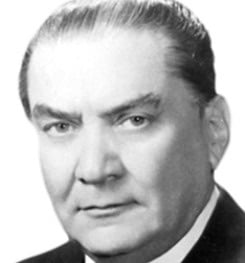Tropical Town
For Miss Eugenia L. V. Geisenheimer
Blue, pink, and yellow houses, and, afar,
The cemetery, where the green trees are.
Sometimes you see a hungry dog pass by,
And there are always buzzards in the sky.
Sometimes you hear the big cathedral bell,
A blindman rings it; and sometimes you hear
A rumbling ox-cart that brings wood to sell.
Else nothing ever breaks the ancient spell
That holds the town asleep, save, once a year,
The Easter festival . . .
I come from there,
And when I tire of hoping, and despair
Is heavy over me, my thoughts go far,
Beyond that length of lazy street, to where
The lonely green trees and the white graves are.
This poem is in the public domain. Published in Poem-a-Day on September 10, 2023, by the Academy of American Poets.
“Tropical Town” appears in Salomón de la Selva’s first book, Tropical Town and Other Poems (John Lane Company, 1918). In “Deep Translation and Subversive Formalism: The Case of Salomón de la Selva’s Tropical Town, And Other Poems (1918),” published in Journal of Philosophy: A Cross-Disciplinary Inquiry, vol. 7, no. 17 (Spring 2012), David A. Colón, an assistant professor of English and Latino studies at Texas Christian University, writes of the poem that “the final stanza [. . .] introduces the next level of awareness: the ‘I.’ It is an abrupt break—a whole new perspective enters the poem. ‘I come from there’ is a charged expression; by virtue of its present tense, it invokes an immigrant idiom, suggesting that while ‘You’ might be in Tropical Town taking a walk to the cemetery, ‘I’ am far from there—an inversion of perspectives. This turn redirects the reader, with nostalgic overtones, through another series of extrapolation. There are times in the psychic life of this ‘I’ when he ‘tires of hoping’ and despairs, implying a life of experience that actively makes sense of the world. But at the onset of these pains, this ‘I’ retreats to yet another vantage, symbolized by the cemetery: a place of final rest, where the mind is no longer burdened, where the cycle of life is clear as day. The cemetery in this poem, as a monument to death—or life—is an image that resonates on dual registers: on the level of the poet seeking repose, and on the level of ancestral, ethnic, and national pride.”

